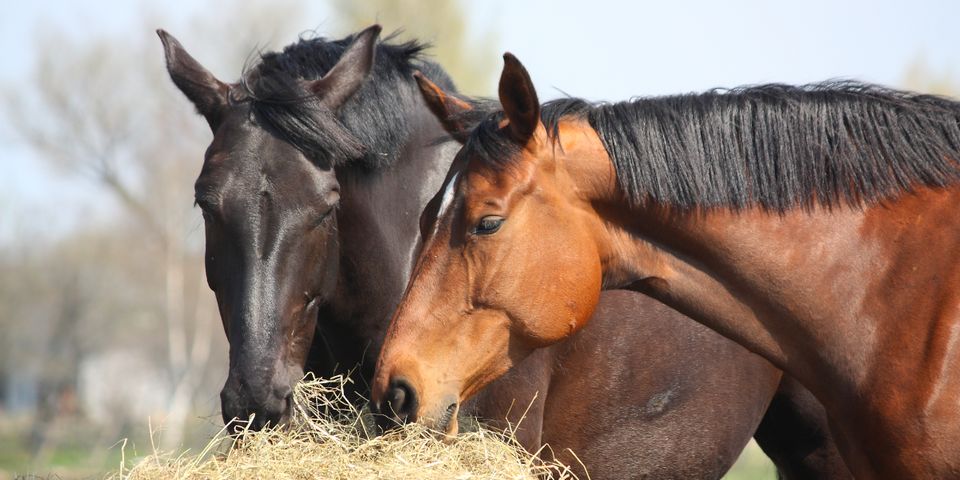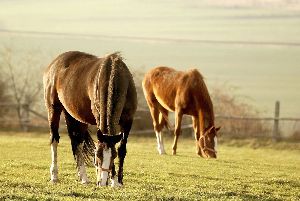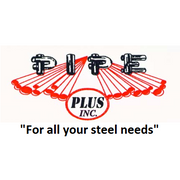
If you’ve never owned a horse before, one of the most important things to know is what your steed needs for a healthy diet. By understanding your horse’s dietary needs and purchasing the necessary feeding equipment, such as grain bins or hay feeders, you can keep your horse in top shape. Here's what you should know about keeping your horse well-fed.
What Are the Best Food Options for Horses?

A horse’s natural diet is heavy on grass, hay, and water. Horses should have regular access to water, particularly after feeding. This helps prevent dehydration and digestive tract blockages. Hay and grass provide the nutrition and energy horses need, though horses that are involved in more rigorous work will often benefit from a supplemental concentrated feed for additional protein and minerals.
Grain bins are used to provide “concentrate feed” with high nutritional value, including oats, corn, wheat bran, and barley. Oat is generally the most popular grain option thanks to its high fiber content. Other grains are typically mixed with oats when provided to horses. Fruits and vegetables like carrots can also add moisture and nutrients to feed, though not all are good for horses.
What Foods Should You Avoid?
While fruits and vegetables can provide some extra nutrients, these are really more of a “treat” for your horse. Too much fruit or vegetables can lead to colic, obesity, and other health problems. “Stone” fruits, such as peaches or plums, also present a choking hazard if they aren’t pitted. Cabbage family vegetables, tomatoes, and potatoes should also not be given to horses.
While you might be tempted to give your horse chocolate, cake, or other treats, these can lead to digestive blockages and obesity. Instead, provide a salt lick block as a treat instead.
If you need a grain bin for your horses, contact Pipe Plus Inc. in Willow Springs, MO. Serving area residents for over 20 years, this local metal fabricator has extensive experience producing grain bins and other equipment for residential, agricultural, and other needs. To learn more or to start planning your project, give them a call at (417) 469-5292.
About the Business
Have a question? Ask the experts!
Send your question

